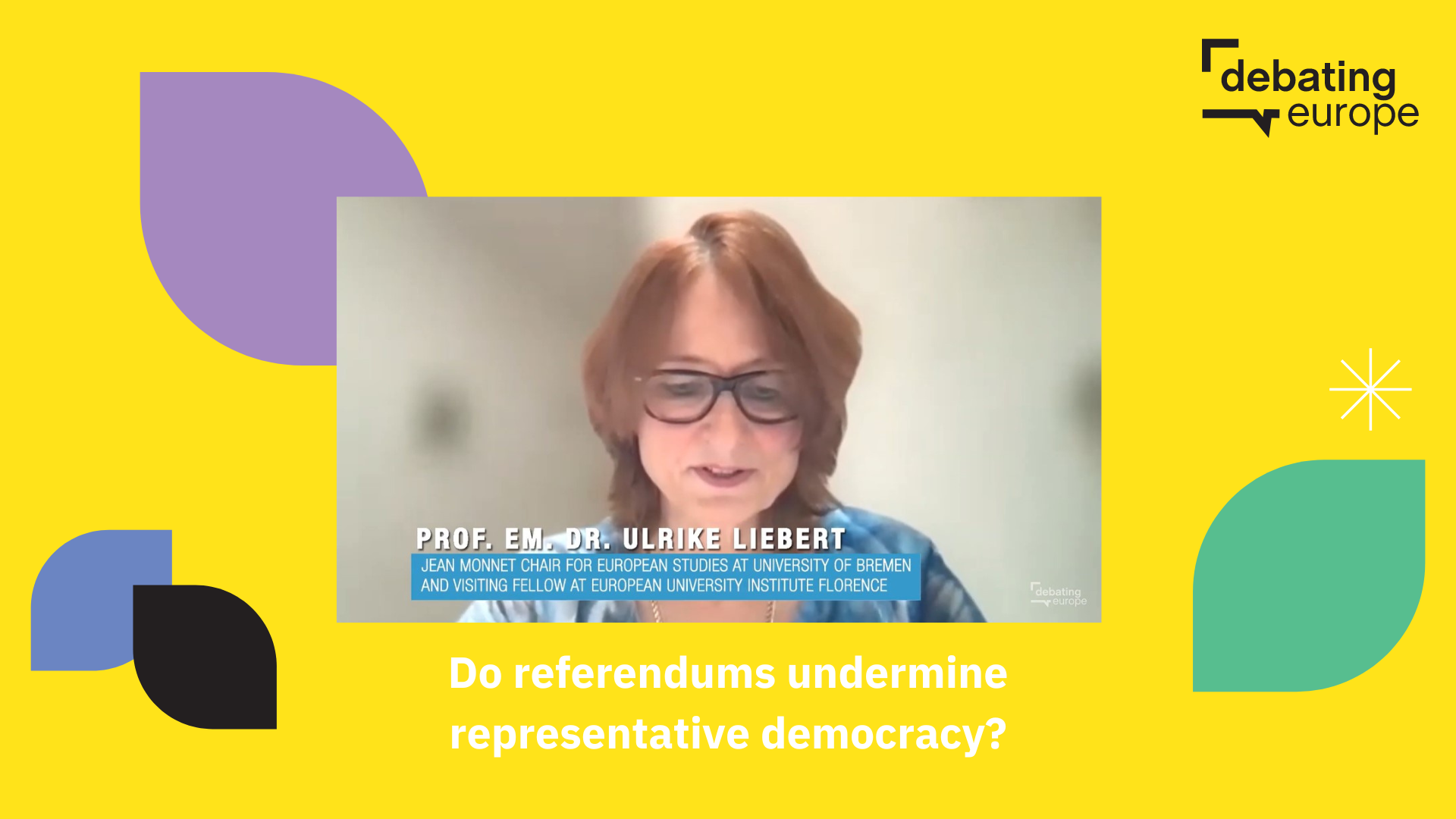Reports, videos and workshops
Do referendums undermine representative democracy?

Politicians are not delegates.
They are not elected in order to uncritically relay the ‘will of the people’. They are elected to follow their own conscience and exercise their own judgement. If their constituents disagree with the decisions they take, then they can be replaced during an election. However, they are more than just a mouthpiece for their voters.
Modern representative democracy entrusts politicians with the autonomy to take decisions on our behalf. In a parliamentary democracy, MPs are able to take the time to listen to all sides in a debate, consider the options, understand the complexities, and make an informed decision once they have all the facts.
At least, that’s the theory.
Critics, however, argue that politicians care more about getting re-elected than they do about making the right decision. They argue that MPs are too easily-swayed by corporate lobbying, and listen closest to those with the deepest pockets. In fact, some believe that direct democracy – in the form of regular and binding referendums on policy questions – is the only true form of democracy.
What do our readers think?
We had a comment sent in from Thomas, who seems sceptical of referendums. He believes that the average citizen isn’t informed enough to properly engage with complex questions of policy. Is his scepticism warranted?
We also had a comment from Christos arguing against referenda because he fears that citizens would always use them to punish the government of the day instead of voting on the real issue. Is this a legitimate concern?
To get a response we put Thomas and Ivan’s comments to European political analyst Ulrike Liebert, Professor of Political Science at the University of Bremen and author of the book “Europeanisation and Renationalisation: Learning from Crises for Innovation and Development”. You can see her response in the video above.
Do referendums undermine representative democracy?
Do they oversimplify complicated issues into binary ‘yes-no’ decisions? Do most people use referendums as an opinion poll on the government?
Image by Freepik
Funded by the European Union. Views and opinions expressed are however those of the author(s) only and do not necessarily reflect those of the European Union or the European Commission. Neither the European Union nor the granting authority can be held responsible for them.![]()
